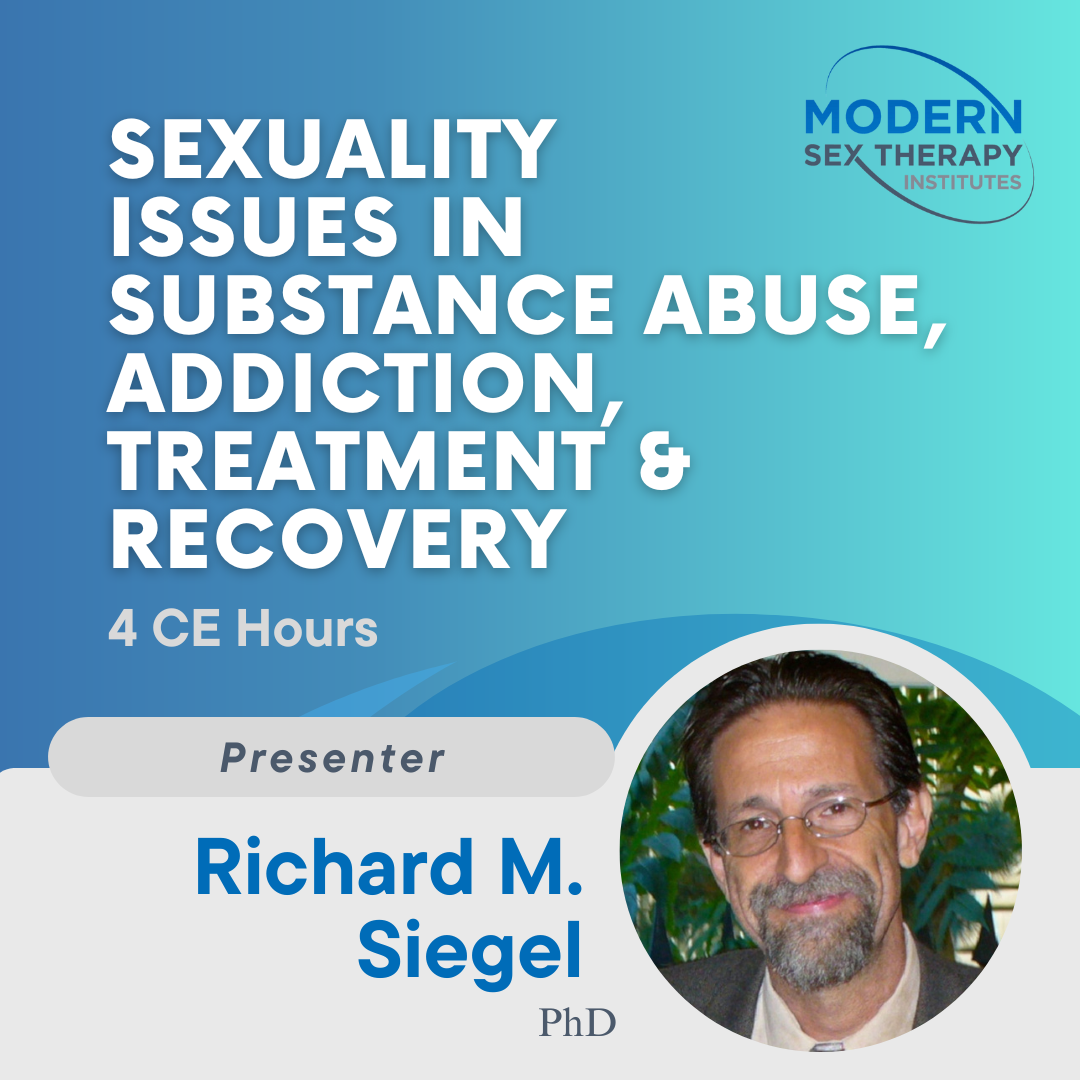Sexuality Issues in Substance Abuse, Addiction, Treatment & Recovery (4 CE Hours, 2022)
$160.00
4 CE Hours
Presenter: Richard Siegel, Ph.D.
Recorded workshop available via video on demand
AASECT Category:
Human Sexuality Education
Section L
- Describe 3 sexuality issues typically seen in all phases of chemical dependency, as well as the often neglected concerns which can effectively couple these disciplines.
- Discuss sexual effects of each of the major categories of “drugs of abuse.”
- Explain how sexual identity issues can impact on chemical dependency, particularly in communities of color and with sexual minorities.
- Discuss strategies for more effective recovery and relapse prevention in chemical dependency by better addressing sexuality and sexual health issues.
Dr. Siegel is the Co-Director of Modern Sex Therapy Institutes. Dr. Siegel is a Florida-licensed mental health counselor and Board-certified sex therapist and is certified by the American Association of Sexuality Educators, Counselors, and Therapists (AASECT) as a sex therapist and supervisor. He has a rich experiential background, including over 30 years working in sexuality education, in- and out-patient counseling and training, and private practice sex therapy. He enjoys a reputation as a seasoned and in-demand workshop and conference presenter, in addition to his primary passion of training, supervising, and participating in the clinical and academic development of the next generation of sex therapists, counselors, and sexologists of all stripe.
Dr. Siegel has served AASECT as conference co-chair for three consecutive years mid-2000s, followed by two elected terms as Board Secretary, and was later appointed for two terms as the chair of the Supervisor Certification Committee. He is also a Clinical Member of the Society for Sex Therapy and Research (SSTAR).
After earning a grueling graduate-level B.S. in pharmacology & toxicology at the Philadelphia College of Pharmacy & Science (now University of the Sciences in Philadelphia), he brought his focus on clinical toxicology to the chemical dependency and addictions field in the early 1990s, which urged his move to complete an M.S. in mental health counseling at Nova Southeastern University in Ft. Lauderdale in 1998. Dr. Siegel completed his doctoral dissertation and a Ph.D. in clinical sexology at the American Academy of Clinical Sexologists in Orlando, FL, with a research focus on the integration of healthy sexuality and addiction treatment. He has worked enthusiastically to integrate traditional and modern approaches in sex therapy into the emergent specialty of sexual medicine, as well as the addiction treatment field.
Class originally recorded: 3/21/2022.
Social workers completing this course receive 4 general continuing education credits.

